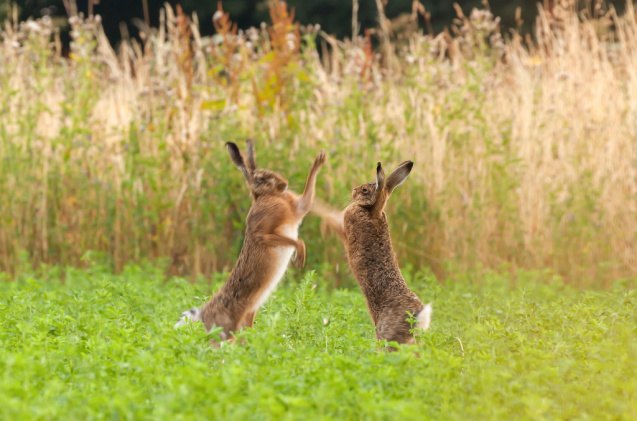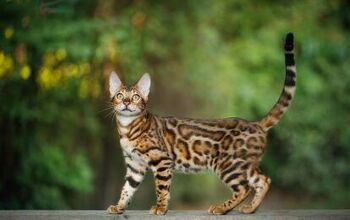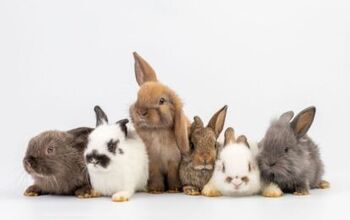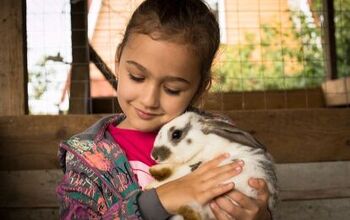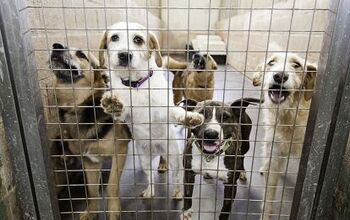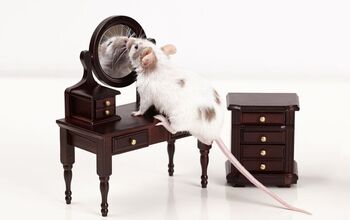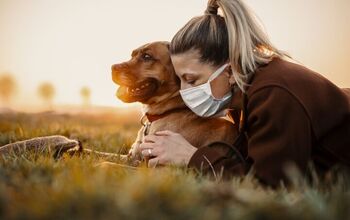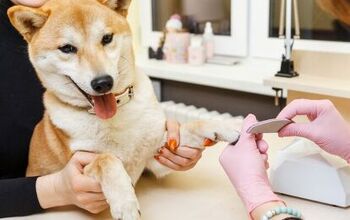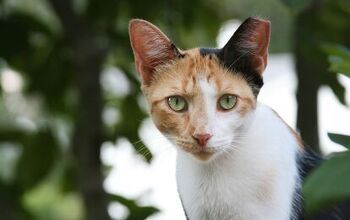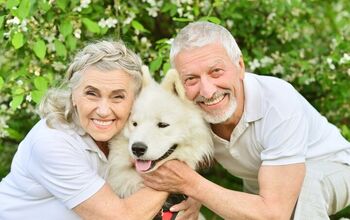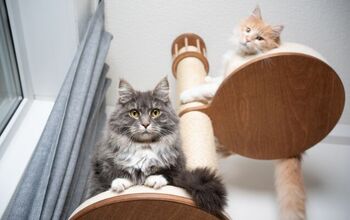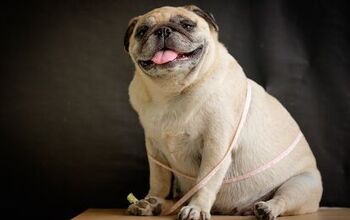5 Most Aggressive Rabbit Breeds

There is no denying that rabbits make wonderful pets – with over 300 unique breeds in the world today, there is a lot of variety, both in looks and in character. This also means that you can easily find a pet rabbit you were always looking for, choosing a perfect companion based on their traits and appearance. But are there any rabbit breeds that are known as aggressive? Those fluffy, cute, and playful bunnies – having aggressive temper tantrums? Of course, you wouldn’t want to deal with an aggressive pet, so you’d want to know if there are certain breeds more predisposed to these behaviors than others. Luckily, bunnies are amongst the least aggressive pets out there, but still, it is possible to have an aggressive pet rabbit. No particular rabbit breed has a lot of aggression as its characteristic trait. This has got to do with them being natural prey animals and not predators. But still, there are a few breeds that can be more energetic, spunkier, and a bit feistier than others. But after all is said and done, it is important to remember that rabbit aggression is most often “created” – it is a result of mistreatment, health issues, or behavioral problems.
Read on as we check out the top rabbit breeds that can have somewhat aggressive tendencies, and take a look at our insights into the reasons for that aggression. With ample knowledge and patience, you can solve these issues once and for all!
1. Flemish Giant Rabbit
The Flemish Giant Rabbit is an old and popular breed, especially in Europe. They can be traced to the 16th century Flanders, where they were sought after as fur and meat animals. Today, however, they are much more commonly kept as pets. Generally seen as timid and graceful, Flemish rabbits can sometimes display aggressive behavior. This is usually in the form of lunging and lashing out and trying to bite whoever is near. However, it is important to remember that this aggression usually stems from their cautious character – they are still closely linked to their wild cousins, and thus are still worried about predators. Of course, there are also hormones, improper housing, and an excess of energy.
2. Netherlands Dwarf Rabbit
Taking a quick glance at these small and cute bunnies, you’d never think they can be aggressive. But it is true – under certain circumstances, these rabbits can become quite feisty and quarrelsome. Despite their size, they have a bold and courageous character, which can turn into trouble when the animal is under pressure. Anxiety, fear, and improper care can make them hostile and see them attempt to bite and lash out. These traits are considered “leftovers” from the first origins of the breed. They also have a lot of energy to spare, so if you fail to exercise them properly, they could get restless and anxious, and that can often result in bad behavior.
3. Checkered Giant Rabbit
One of the more popular rabbit breeds in America, these animals are often described as mellow and friendly giants with a merry soul. This is true but to an extent. It is well known that these bunnies can be quite aggressive and spiteful when placed in an unexpected and pressuring situation. One of the common reasons why these rabbits can become aggressive is simply due to their size. These gentle giants require a lot of space to move about and exercise. If you mistreat them and place them in a confined space, they can get restless, unhappy, and in the end, aggressive.
4. Lionhead Rabbit
This is one of the most unique rabbit breeds, exceptional due to its fluffy and shaggy fur that resembles a lion’s mane. Due to their small size, unique looks, and generally friendly disposition, one would never think that Lionheads can turn to aggression and restless behavior. But these things can certainly happen. The most usual reason for aggression in Lionheads is fear. In those extreme cases when they feel scared or threatened, Lionheads can become quite feisty, lashing out and wanting to give you a serious bite. This aggression can also be manifested when they are together with another rabbit. If something goes awry, the Lionhead won’t hesitate to get physical and confrontational. But make them feel comfy and loved, and these bunnies will surely be the wonderful pets they can be.
5. Holland Lop Rabbit
Holland Lops are one very unique European breed of rabbit and are very loved as pets. They are well known for their timid and friendly disposition and generally calm attitude. But this is not always the case. When feeling threatened, confined, or otherwise neglected, the Holland Lop can become mischievous, angry, destructive, and generally aggressive. They tend to focus this aggression on their surroundings rather than on other beings. Expect a lot of destroyed enclosures, walls, carpets, and anything they can reach. What is more, this tendency can be best observed in males, commonly called “bucks”. More so than females, bucks can often destroy things around them, especially when feeling threatened or confined.
What are the Most Common Causes of Aggression in Rabbits?
Before we go over the basic causes of aggression in bunnies, it is important to mention the most important thing: rabbits are not naturally aggressive. This means that almost all causes of aggression are behavioral problems that arise in captivity – i.e. in their lives as household pets. With that being said, you will have to know exactly which things and situations are the most common causes of aggression in rabbits.
- Hormones
When rabbits reach sexual maturity, their hormones come into play, and they can direct many aspects of their lives and natural urges. And it is due to hormones that aggression can first be manifested. And interestingly, this is most common in female rabbits. You will first observe this behavior sometime between 3 and 6 months of age when bunnies usually reach their sexual maturity. The most common situations that escalate are related to territorial behavior and courting. However, all rabbit owners are encouraged to spay and neuter their rabbits, as this can help greatly with the hormones running wild. It also helps with many other causes of aggression, such as fear. So be sure to consult with your vet and do the procedure as soon as it is safe.
- Territorial Behavior
Alas, sometimes spaying and neutering are simply not enough to eradicate some basic natural behaviors that all creatures of this world share. And territorial behavior is one of these. This can become quickly apparent when you are an owner of several rabbits sharing the same space. Two males, two females, or a mix of several rabbits – the tensions can quickly rise. And even if the rabbit is alone, they can still display traits of territorial aggression. They can be protective of their enclosure, their food or water bowls, their nook, toys, hay – anything they love. If they feel this is threatened, they won’t hesitate to lash out and take a bite at any perceived intruder, including you! Socialization from an early age and plenty of handling can help solve this issue.
- Health Issues
Not at all surprisingly, rabbits that are in pain can become very frustrated, and from there, aggressive. It is sometimes difficult to see and know exactly when your rabbit is suffering from something – it can be difficult to spot when they are in pain. But when odd behaviors become common, it is probable that a health issue is an underlying cause. Of course, the assistance of your vet should be the first thing to seek out. And you should not be surprised to realize that as soon as the pain is gone, the aggressive behavior stops! Common health issues in rabbits can cause painful teeth, lack of appetite, pain in joints, apathy, and so on. And when an animal is in pain, its common first reaction is biting and lashing out.
- Improper or Unwanted Handling
Every rabbit owner would love to cradle, caress, and cuddle their bunny pet – all day long. Children especially are very fond of the fluffy little bunnies and would snuggle them endlessly if given the chance. However, you should ask yourself if the bunny shares these feelings. Some rabbits are not fond of handling and can become aggressive to let you know this. It is important to start handling training from an early age and get your pet used to human attention and hands. Fail to do so, and it can be too late as the rabbit gets older. If not used and fond of handling, your pet won’t hesitate to lash out and try and bite your hand. This is no good, and rabbits that hate being handled can potentially injure themselves trying to flee and wiggle out. That is why socialization is an important part of rabbit care.
- Confinement and boredom
Rabbits are very social animals and will love to play, cuddle, exercise, and simply enjoy their daily routines. And this means that they cannot be cooped up in a small enclosure for the entire day. Rabbits that are often cooped up will begin displaying behavioral issues, and aggression can be the main one. Because of this, it is your duty to provide your rabbit with plenty of fun and free space throughout the day. Take them outside in a protected and supervised environment, and let them have their fun and daily exercise – in the sun, the grass, and nature. After all, the natural habitat of rabbits is not indoors. So, if you notice that your bunny is becoming grumpy, try offering more exercise outside their enclosure. It might make a world of difference.
Does My Rabbit Hate Me?
So things have been taking a turn for the worse, and your bunny pet became aggressive and bit you. Does that mean you are an awful pet owner and that your pet hates you? The answer is no, more than likely not. If you have been a caring and responsible owner, it is still possible that something caused aggression in your rabbit that’s not your fault. And, of course, biting does not mean your pet despises you. It is very rare for a rabbit to dislike or “hate” a single individual. It is simply that the animal got scared or felt threatened, and followed its natural urge to bite. It just happened that it was you who got bit. And you can rest assured that the bond you already had with your pet rabbit is still intact. You just need to solve the issue that causes aggression, first.
Of course, if you have been an irresponsible owner or even abusive, then it is certain that the rabbit dislikes you, and more importantly – fears you immensely. Aggression should not be surprising in these cases. Needless to say, you should not be a bad pet owner. If you provide your pet rabbit with all they require, they will associate you with good things, and that is the essential foundation of a loving pet-owner relationship. It is only when things such as pain, hormones, or territorial behaviors kick in, that aggression can interfere. Luckily, it is a fixable issue.
How to Protect Your Belongings from Aggressive Rabbit Behavior?
When aggression in rabbits becomes apparent, you might see them directing all that anger towards innocent pieces of furniture and other household items. Don’t be surprised to see table and chair legs all ruined, carpets shredded, door frames scratched, or enclosures destroyed. This is common in the formative years of many rabbit breeds. Of course, you can think in advance and save your precious items from certain destruction. There are many ways you can protect everyday items. Of course, some things will have to be secured. Cables, for example, can be very dangerous if nibbled by a rabbit. Electric and hardware stores usually stock protective coverings that work well. Similar items can be used to secure table and chair legs, and door frames as well. Of course, you can always simply “fence off” the rooms you don’t want your rabbit to enter. Little fences designed for pets are a great way to block off doorways and leave your pet rabbit only in the room with its enclosure. And, most importantly, work on the underlying causes of your bunny’s destructive behavior so you can prevent it altogether.

A proud mama to seven dogs and ten cats, Angela spends her days writing for her fellow pet parents and pampering her furballs, all of whom are rescues. When she's not gushing over her adorable cats or playing with her dogs, she can be found curled up with a good fantasy book.
More by Angela Vuckovic



